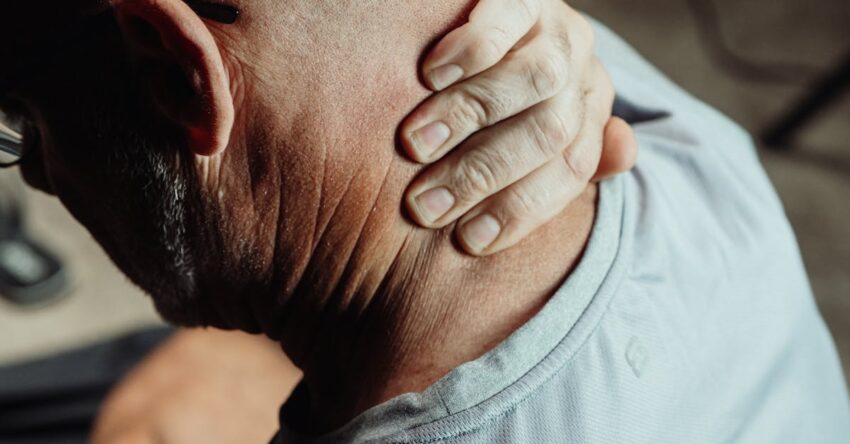Boosting your neuroplasticity rehabilitation can feel like unlocking a secret code to better brain health. Imagine tapping into the incredible power of brain plasticity to enhance your cognitive recovery after a stroke or injury. You can achieve this by using effective neurorehabilitation methods and adaptive recovery strategies that focus on rebuilding and strengthening neural pathways in your brain.
Your brain is like a muscle; the more you train it, the stronger it becomes. By understanding and applying specific brain training exercises and neural adaptation techniques, you can significantly improve your functional recovery. Explore how rehabilitation neuroscience uses innovative interventions and therapies to target areas of the brain responsible for movement and speech, aiming to optimize your upper limb and extremity functions.
Curious to learn how you can harness these little-known methods to transform your rehabilitation journey? Dive into these insightful strategies and unleash your brain’s full potential!

Photo provided by Kindel Media on Pexels
Within the article
Understand Brain Plasticity
When you think about brain recovery, understanding brain plasticity is key. Your brain has the amazing ability to change and adapt. This adaptation helps in functional recovery after injuries. So, how does it work? Well, your brain can form new connections and pathways. These connections allow you to regain lost skills or develop new ones. Isn’t that fascinating?
Now, you might wonder how to make this work for you. It’s all about engaging your brain in different activities. These activities might be things that challenge your brain or make you think differently. For example, trying new hobbies or solving puzzles. These actions enhance the brain’s ability to adapt and grow. The more you engage, the more your brain will change.
Adopt Neurorehabilitation Methods
Next, let’s look at Neurorehabilitation Methods. You have many options to choose from. Some focus on physical therapy, others on speech therapy or occupational therapy. Each method works differently but aims for the same goal. They all seek to improve your brain’s function.
Think about what works best for you. Maybe you need help with movement? Then, therapies focusing on muscles or limbs could be effective. Remember, patience is important. Your brain needs time to adapt. Consistent practice is key to success. Therefore, stick with the rehabilitation programme that suits you.
Emphasize Adaptive Recovery Strategies
Adaptive recovery strategies focus on personalizing the way you recover. Here, it’s all about finding what fits your needs. Different people have different needs. What works for someone else may not work for you. Therefore, it’s important to try different strategies.
One way is by setting small goals. Start with something simple and achievable. As you reach these goals, set new ones. This keeps your progress steady and manageable. And it gives your brain the chance to adapt. But remember, celebrate each success no matter how small it might seem.
Utilize Brain Training Exercises
Now, let’s talk about brain training exercises. These exercises are designed to challenge your brain. They help in forming new neural pathways. Puzzles, memory games, or learning a new language are great examples. They all push your brain to work in new ways.
Why should you use them? Because they encourage neural adaptation effectively. Regular practice makes these exercises more effective. Think of them as workouts for your brain. The more you practice, the stronger your brain becomes.

Photo provided by RDNE Stock project on Pexels
Explore Neural Pathways and Adaptation
Your brain’s neural pathways are like roads. They connect different areas of the brain. When you learn something new, you create new pathways. This is essential for rehabilitation. By leveraging these pathways, you aid your brain in adapting to changes.
So, how do you do this? Engage in activities that are both challenging and stimulating. These activities should make you think and problem-solve. Stimulation intervention techniques like robotic therapy can also help. They guide your brain in forming stronger pathways. In turn, this makes recovery more effective.
Focus on Functional Recovery
Functional recovery is about getting back to doing what you love. Whether it’s walking, talking, or another activity, the aim is simple. You want to regain these functions to the best of your ability.
To do this, you need targeted practices. If walking is your goal, work with therapies that focus on limbs and muscles. Similarly, for speech, focus on therapies that target communication skills. Repeated practice is essential. With time, your body and mind will coordinate better.
Leverage Rehabilitation Neuroscience
Finally, leverage the insights of rehabilitation neuroscience. This field studies how the brain heals and adapts. Understanding its principles can be very helpful. It provides guidance on the most effective techniques for recovery. Therefore, keep learning and apply these insights.
Make use of technologies that support neuroplasticity. Some therapies use advanced tools for better outcomes. By staying informed and adapting, you pave the way for better rehabilitation outcomes and potential. Always seek advice from professionals who specialize in this area. They can provide you with guidance tailored to your needs.
Embrace the Power of Your Mind
Understanding how your brain can adapt and change empowers you to take control of your own healing journey. By embracing techniques that promote mental flexibility, you enhance your ability to recover and grow. Simple steps, such as engaging in brain training exercises, help create stronger connections in your mind, leading to improved cognitive skills and overall well-being.
Start by incorporating a few daily activities that promote mental agility. Try activities that challenge your thinking, such as puzzles or learning a new skill. Consistently engaging in these exercises can strengthen neural pathways and support better neurorehabilitation outcomes. This commitment to self-improvement makes a big difference over time.
Take charge of your recovery and begin with small, manageable steps. Discover new activities and make them a regular part of your routine. Your journey toward better brain health starts now. Embrace every opportunity to improve your mind’s potential today.
